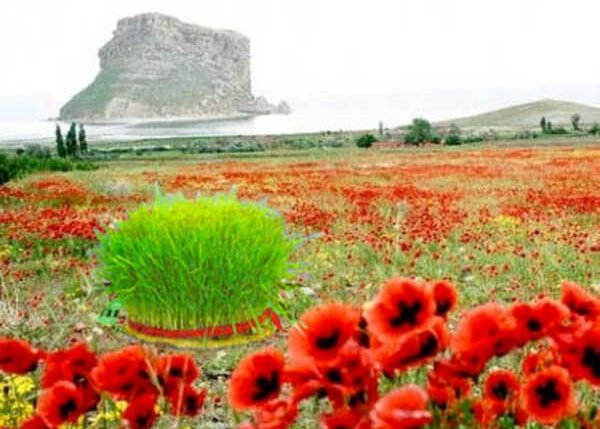Chronos, Kairos and Aion are the three deities of time, events and epic destinies. Here is the multi-religious and multicultural calendar!
Find us on our website Mythology and Legend, on Facebook and on instagram !

The schedule in brief from D-2 to D+5
- April 2, 2025, : Sizdah Bedar
- April 8, 2025, : Jashan de Farvardin
The complete interactive calendar
Holidays of the month
April 1, 2025 (2 events)
April 1, 2025

Today, the Assyrian people celebrate Akitu, the Babylonian and Sumerian new year more than 5 millennia old. For 12 days, prayers, feasts and parades take place to celebrate the god Marduk. #mythology #myth #legend #calendar #1April #Marduk #Akitu
April 1, 2025

Today, Assyrians celebrate Kha b-Nisan, the new year. These origins date back to 3000 BCE, the Assyrians wear traditional costumes. Traditional dances, songs and poems accompany the party all night long. #mythology #myth #legend #calendar #April 1 #Assyrian
April 2, 2025 (1 event)
April 2, 2025

Today Iranians celebrate Sizdah Bedar, the end of Nowruz. This festival probably has its origins in Avesta and Zoroastrianism. It is an opportunity to go into nature to have a family picnic and enjoy the beauties of Spring. It is also the occasion to make jokes (April Fool's Day) since 536 CE. #mythology #myth #legend #calendar #April 1st #nowruz #SizdahBedar #iran #Avesta
April 8, 2025 (1 event)
April 8, 2025

Today, the Zoroasters celebrate the Jashan of Farvardin, in honor of their Fravashi. The Fravashi is the guardian angel of an individual (existent or non-existent) who sends his urvan (soul) to the material world to fight evil. On the fourth day after death, the urvan returns to his Fravashi where he will benefit from his earthly experience for his next reincarnation. #mythology #myth #legend #8April #Zoroaster #Farvardin
April 14, 2025 (1 event)
April 14, 2025

Today, Yazidis celebrate Çarşema Sor (Red Wednesday), the new year. Generally celebrated on the first Wednesday after April 14, eggs are boiled and colored, sawuk bread is baked, graves are visited to commemorate the dead and bring them offerings and fruits. Yazidis also wear festive clothing and visit nearby temples, including Lalish, home to the sacred Zemzem Spring, which flows into a dark cave. Yazidis offer sacrifices at the entrance to the cave and receive blessings. #mythology #myth #legend #calendar #April 14 #YazidiNewYear #Sawuk #Lalish
April 15, 2025 (1 event)
–
April 15, 2025
On this day, the Aztecs began the month of Huey Tozoztli, dedicated to the god Tlaloc. Tlaloc was the god of fertility (of the earth), water and good health. His kindness was essential to guarantee good harvests and avoid bad weather that could ruin them during this month. #mythology #myth #legend #calendar #12May #HueyTozoztli #Aztec #Tlaloc
April 21, 2025 (1 event)
April 21, 2025

Today, Bahá'ís celebrate Riḍvān. Lasting twelve days, the festival commemorates the prophet Bahāʾ-Allāh. Riḍvān means paradise and refers to the Garden of Ridván located near Baghdad, where the prophet spent twelve days after being exiled from Baghdad by the Ottoman Empire, before beginning his journey to Constantinople. #mythology #myth #legend #calendar #April 21 #Ridvan
Multicultural and multi-religious almanac
An almanac is a calendar showing the main dates of the calendar, the religious holidays, bearing ephemerides such as the phases of the moon or the duration of the days (lunar and solar calendars).
A calendar is a system for marking dates according to time. Such a system was invented by men to divide and organize time over long periods. The observation of the periodic phenomena of the environment in which they lived — such as the daily movement of the shadow, the return of the seasons or the lunar cycle — served as the first references for organizing the agricultural, social and religious life of societies.
The calendar used today in most of the world is the Gregorian calendar. In everyday language, an ephemeris designates what happens daily; the ephemeris of the day is the list of the significant events of this day.